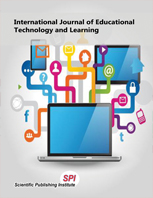Project-Based Learning in Introductory Statistics: Comparing Course Experiences and Predicting Positive Outcomes for Students from Diverse Educational Settings
DOI:
https://doi.org/10.20448/2003.32.52.64Keywords:
Teaching statistics, Passion-driven statistics, Project-based learning, Science, technology, engineering and mathematics (STEM), Flipped classrooms.Abstract
In order to evaluate the acceptability and potential impact of the Passion-Driven Statistics curriculum, this article describes background characteristics, and course experiences and outcomes of students enrolled in the multidisciplinary, introductory, project-based course in liberal arts colleges, large state universities, regional college/universities, and community colleges. We found that the course could be successfully delivered across these diverse educational settings. After controlling for educational setting and pre-survey responses to individual outcome measures, consistent predictors of positive course outcomes included student’s initial interest in conducting research, their higher likelihood of enrolling in a statistics course if it were not required, finding the project-based course less challenging, and finding the research project more rewarding than other students. Regional college/university, and community college students reported working significantly harder in the course and finding the course more challenging than students taking the course at liberal arts colleges or state universities. Students from liberal arts colleges generally reported more positive course experiences than students from other educational settings. However, when compared to students from both liberal arts colleges and large state universities, those from regional colleges/universities reported being more likely to have learned more in the project-based course than in other college courses they had taken. Taken together, the project-based course was successfully delivered across diverse post-secondary educational settings and provides a promising model for getting students hooked on the power and excitement of applied statistics.


